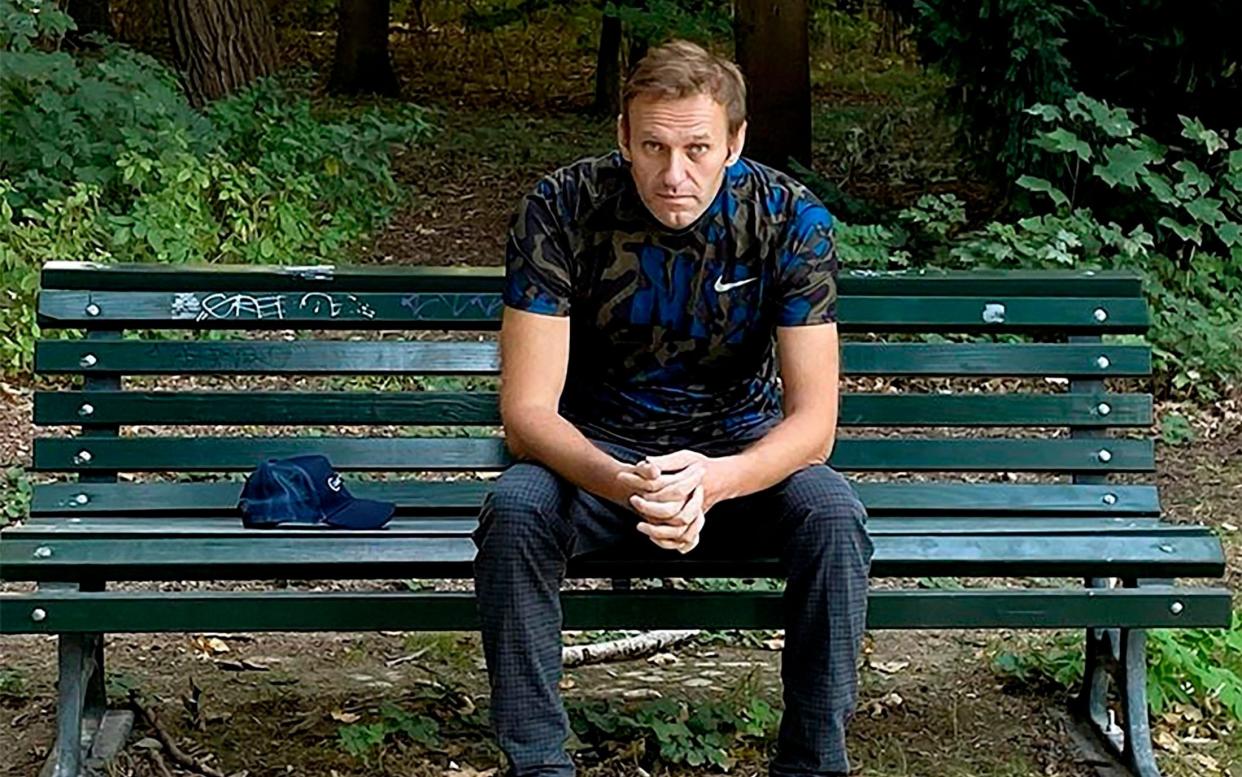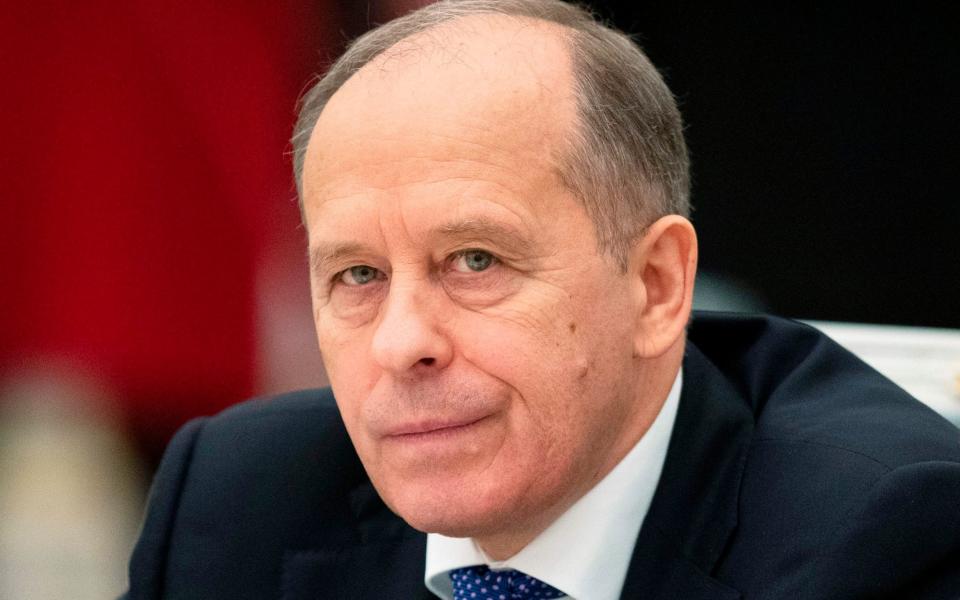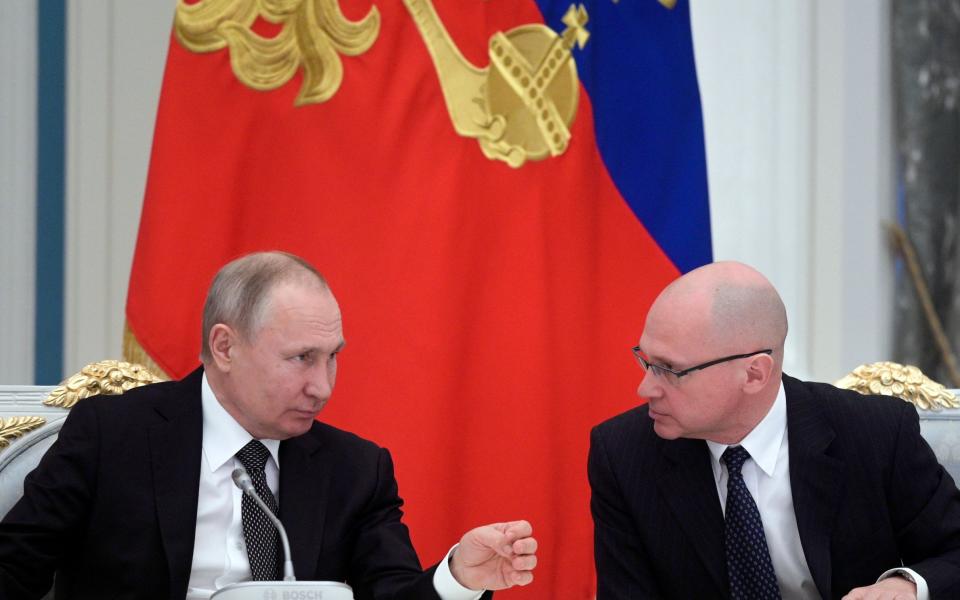UK and EU impose sanctions on Putin inner circle over Navalny poisoning

- Oops!Something went wrong.Please try again later.
- Oops!Something went wrong.Please try again later.
The UK is to enforce European Union sanctions against members of Vladimir Putin’s inner circle over the poisoning of the opposition leader Alexei Navalny, the Foreign Office said.
The announcement came hours after the EU imposed asset freezes and travel bans on six senior Russian officials, including Alexander Bortnikov, the director of the FSB intelligence service, and two deputy defence ministers.
Its also imposed sanctions on a chemical research institute in Moscow involved in the development of the nerve agent Novichok, which is believed to have been used in the attempted assassination of Mr Navalny.
“Together with our international partners, we are sanctioning those responsible for the criminal poisoning of Alexey Navalny,” Dominic Raab, the foreign secretary, said.
“Any use of chemical weapons by the Russian state violates international law. We are determined to hold those responsible to account.”

“The UK and its partners have agreed that there is no plausible explanation for Mr Navalny’s poisoning, other than Russian involvement and responsibility,” the Foreign Office said in a statement.
The EU said independent tests in Germany, France and Sweden had found Mr Navalny was poisoned with Novichok.
“This toxic agent is accessible only to state authorities in the Russian Federation. In these circumstances, it is reasonable to conclude that the poisoning of Alexei Navalny was only possible with the consent of the presidential executive office,” it said in a statement.
The sanctions were clearly aimed Mr Putin’s inner circle, and included two members of his presidential staff and his senior representative in Siberia.
The move was announced as Mr Navalny made public the names of four wealthy Russian exiles he said had paid the cost of his medical evacuation to Germany and treatment to Berlin.
They include Evgeny Chichvarkin, a billionaire Russian entrepreneur who lives in London and is a prominent critic of Mr Putin.

Mr Navalny fell sick on a flight from the Siberian city of Tomsk to Moscow in August. The plane was diverted to Omsk where Russian doctors initially claimed he was too sick to travel. Following intense international pressure Russia agreed to his transfer to Berlin.
In a post on his Instagram account Mr Navalny said the medical evacuation flight to Berlin cost €79,000 (£72,000) and was paid for by Boris Zimin, a US-based Russian businessman and outspoken critic of Mr Putin.
He said his treatment at Berlin’s Charite teaching hospital cost €49,900 (£45,000) and the costs were shared by Mr Chichvarkin, Sergei Alexashenko, a prominent Russian economist based in the US, and Roman Ivanov, who he described as an “IT specialist”.
Mr Zimin’s involvement in paying for the flight was previously known but it is the first time the other three have been named. Mr Navalny said he had made the details public in the interests of transparency.
“Instead of a thousand words...Alexei, get well soon. Great things await us!” Mr Chichvarkin wrote in reply to the Instagram post.

